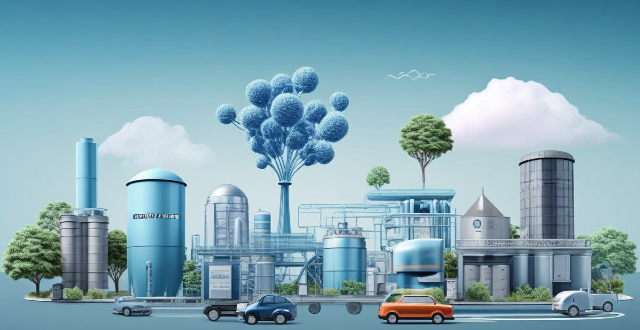Large-scale carbon sequestration faces numerous challenges including technical obstacles, economic barriers, and social concerns. Technical challenges include developing efficient capture technology, finding suitable storage capacity, building transportation infrastructure, and ensuring ongoing monitoring and verification. Economic challenges involve high costs, lack of financial incentives, and market competition from renewable energy sources. Social and environmental challenges encompass public perception, potential environmental impacts, energy consumption, and legal and regulatory issues. Addressing these challenges requires a multidisciplinary approach involving collaboration among scientists, engineers, policymakers, and the public.

Challenges Associated with Large-Scale Carbon Sequestration
Carbon sequestration is the process of capturing and storing carbon dioxide (CO2) emissions to reduce their impact on the environment. While this technology has the potential to significantly mitigate climate change, there are several challenges associated with large-scale implementation. In this response, we will explore these challenges in detail.
Technical Challenges
1. Capture Technology: One of the main technical challenges is developing efficient and cost-effective methods for capturing CO2 from various sources such as power plants, industrial facilities, and transportation systems.
2. Storage Capacity: Finding suitable geological formations for long-term storage of captured CO2 is another challenge. These formations must be able to securely contain the CO2 without leakage or other environmental risks.
3. Transportation Infrastructure: Developing a reliable and safe infrastructure for transporting captured CO2 from its source to the storage site is also crucial. This may involve building pipelines, trucks, or other means of transportation.
4. Monitoring and Verification: Ensuring that the stored CO2 remains contained and does not leak into the atmosphere requires ongoing monitoring and verification efforts. This can be technically challenging and resource-intensive.
Economic Challenges
1. Cost: The high cost of carbon capture and storage (CCS) technology makes it difficult to implement at a large scale. Governments and private sector investments are needed to support research and development to reduce costs.
2. Incentives: Lack of financial incentives for companies to invest in CCS technology can hinder its adoption. Government policies and regulations should provide sufficient incentives for businesses to adopt CCS solutions.
3. Market Competition: As renewable energy sources become more competitive and widely available, CCS technology may face market competition, making it harder to justify its implementation.
Social and Environmental Challenges
1. Public Perception: Public acceptance of CCS projects can be influenced by concerns about safety, environmental impacts, and potential risks associated with the technology. Addressing these concerns through transparency and effective communication is essential.
2. Environmental Impact: The potential environmental impacts of CCS projects, such as land use changes, water consumption, and ecological disruptions, must be carefully considered and minimized during project planning and implementation.
3. Energy Consumption: Carbon capture processes often require significant amounts of energy, which can result in increased greenhouse gas emissions if not managed properly. Efforts should focus on improving energy efficiency and using renewable energy sources to power CCS facilities.
4. Legal and Regulatory Issues: Establishing clear legal frameworks and regulatory guidelines for CCS projects is crucial to ensure compliance with environmental standards and protect public health and safety. Collaboration between governments, industry stakeholders, and civil society organizations is essential in this regard.
In conclusion, large-scale carbon sequestration faces numerous challenges ranging from technical obstacles to economic barriers and social concerns. Addressing these challenges requires a multidisciplinary approach involving collaboration among scientists, engineers, policymakers, and the public. By overcoming these obstacles, we can harness the full potential of carbon sequestration as a vital tool in our fight against climate change.